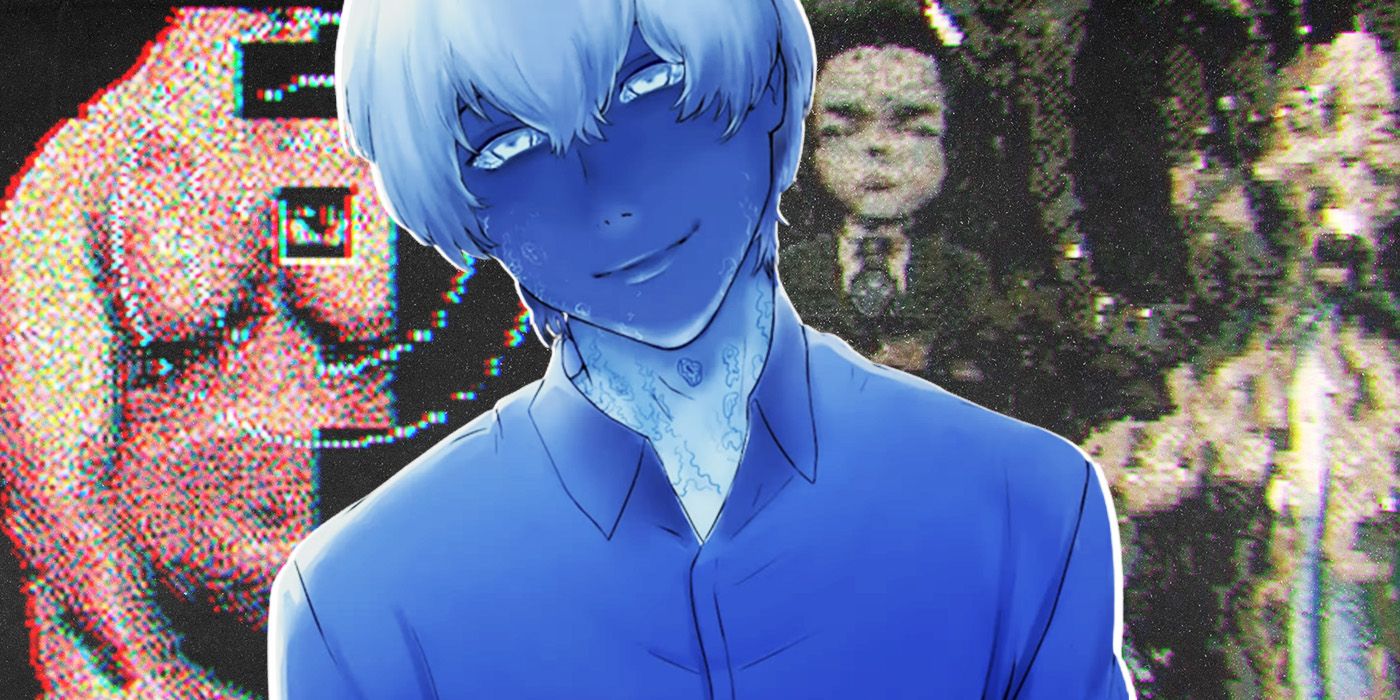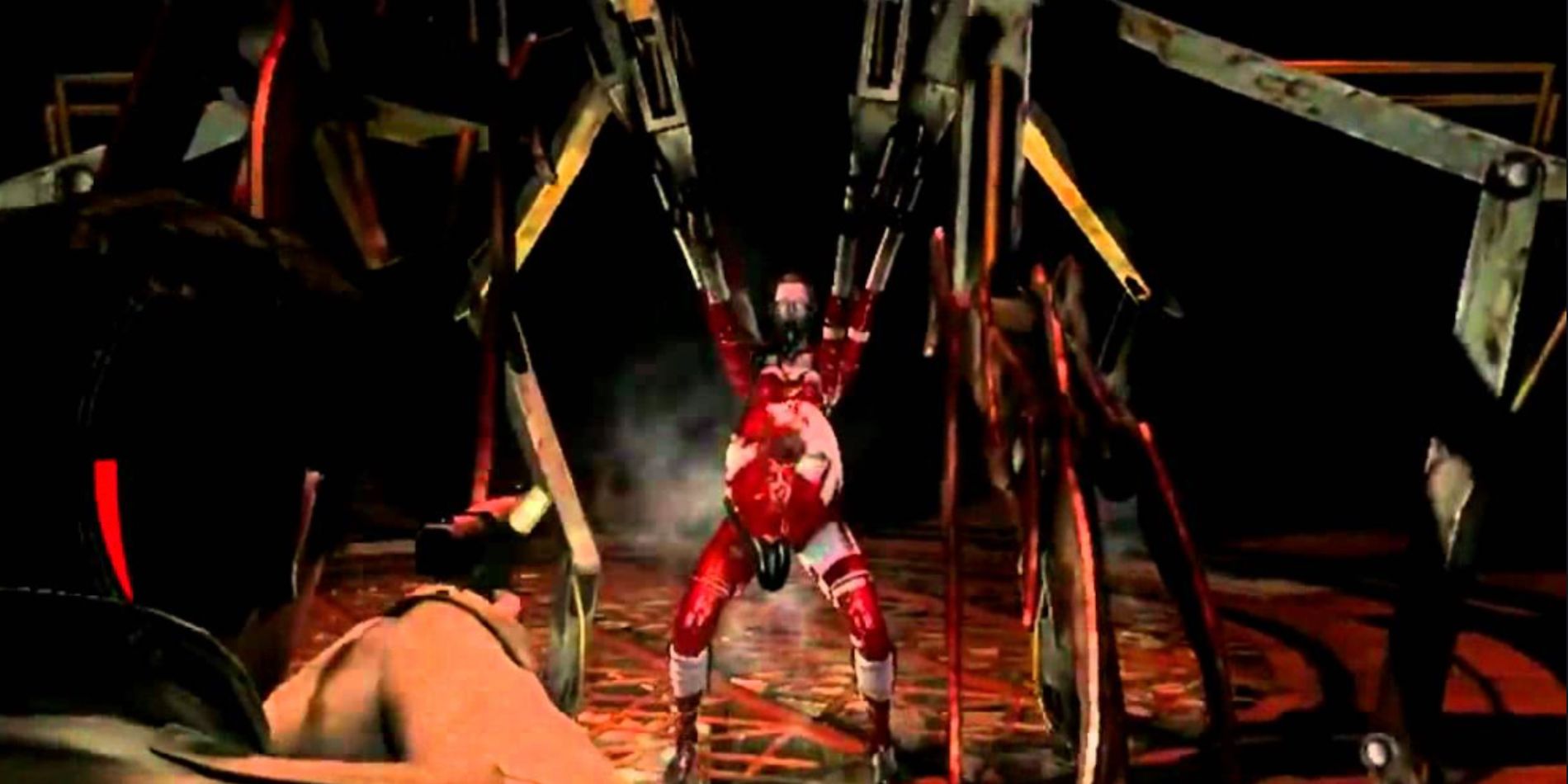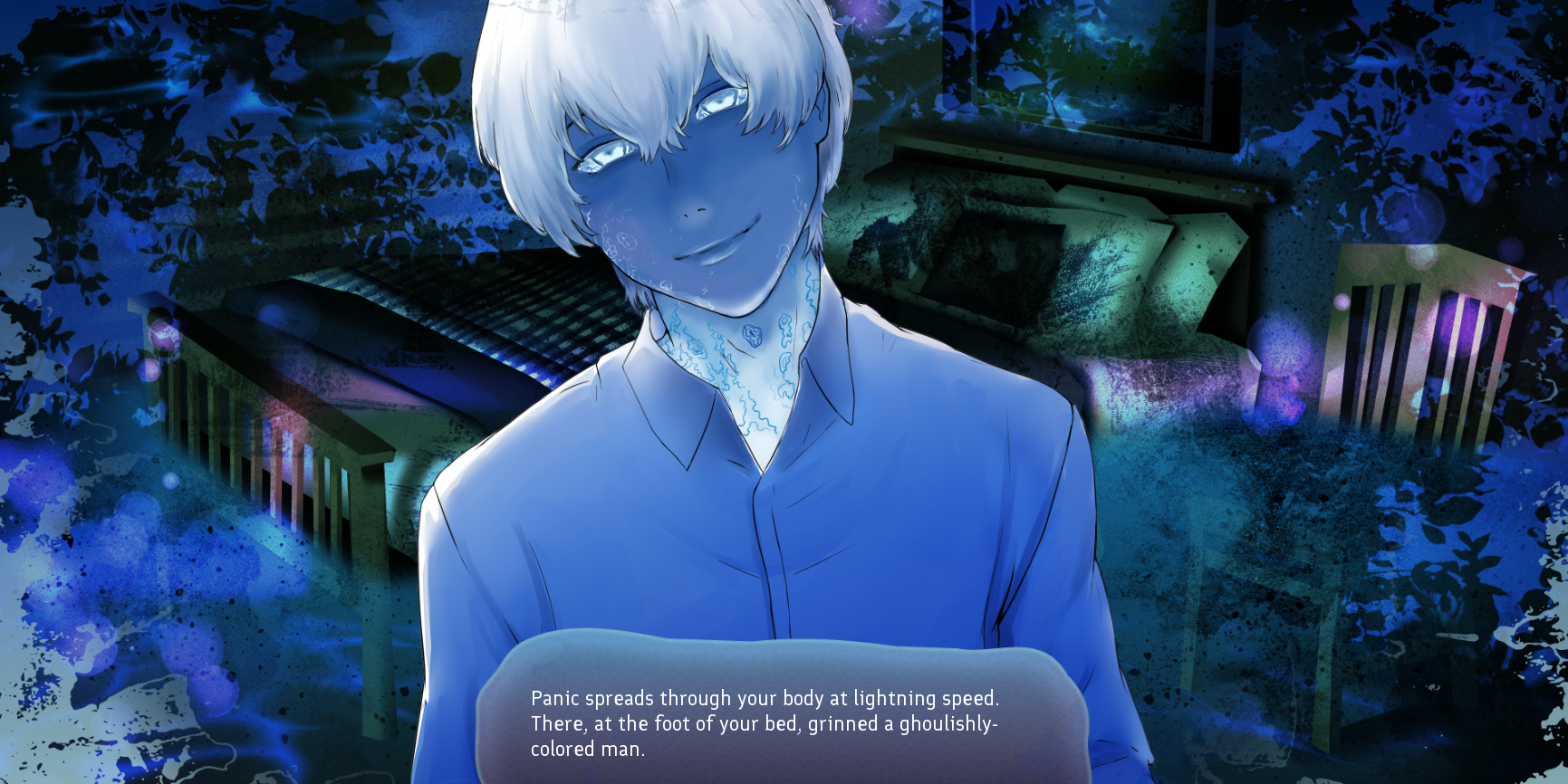Summary
- The past few years have seen an increase in video games that focus on body horror, a subgenre that explores grotesque and psychologically disturbing changes to the human body.
- While body horror has always existed in horror games, it has typically been a byproduct of the plot rather than the main focus. However, recent games have shifted to make body horror itself the central premise.
- The rise in body horror games can be attributed to the fear and anxiety surrounding the Covid-19 pandemic, which has led to a sense of isolation and a loss of bodily autonomy among many people. These games provide a way for gamers to cope and process these emotions.
Pumpkin spice has returned and the Spirit of Halloween is starting to reappear in previously desolate storefronts as far as the eye can see. This shift toward the spooky season is often hotly anticipated with horror movies and games galore. However, it can be said that the world has lived through a perpetually horrifying time in history as Covid put lives on hold and ended many more in horrible ways. The existential threat posed by disease and the loss of bodily autonomy was guaranteed to have an impact on people in more ways than purely physical. This level of dread had rarely been experienced in the last century and that impact has been felt in multiple formats.
Video games have been impacted in a strangely unique way. Since 2020, there has been a marked uptick in games that focus on a specific genre of horror that is more commonly categorized as body horror. This extremely specific genre has always lurked in the darkest recesses of people's minds since there has been awareness of the body itself, but the last few years have made it something that people have begun to explore more readily.
Body Horror Isn't New To Video Games, But It Is A New Focus
Body horror is defined as a subgenre of horror that intentionally puts grotesque and psychologically repulsive changes to the body front and center. Specifically, it focuses on the limits and transformative qualities of the human body to create something that is both recognizable and disgusting. This particular form of horror speaks to the part of the mind that rejects things that look almost human but aren't quite human enough to be comforting in their shape language. While there are aspects of body horror that are used in multiple horror genres, body horror itself is not often a violent genre. Instead, it is marked by a slow loss of conscious control over the body either through mutation, disease, or other external factors that are often not inherently the result of violence. This is a genre that is more mired in the ideas of violation and loss rather than in bloodshed. Body horror has been around for a while, with Frankenstein being one of the earliest examples written all the way back in 1818. Talking about the influence of Shelley's novel on horror is something of an old topic that is relatively blatant, but it replaces the landscape of fear with sutured skin.
Aspects of body horror exist across video games. From the Lovecraftian nightmares of Bloodborne to the Jacob's Ladder-inspired world of Silent Hill and the infections of The Last Of Us, the human body is twisted and deconstructed over and over again for the purposes of fear—but it is rarely the overall focus of games themselves and more of a byproduct of the circumstances of the plot. Games like Telltale's The Walking Dead are scary independently of the examples of body horror that the zombie genre naturally has. The horror itself is rarely derived from the process of zombification and instead from the existential threat of zombies. In the last few years, several games have shifted that focus to make the body horror itself the main premise of the experience, and they are often shockingly quiet in their presentation.
We Have Lived Through An Age Of Body Horror
Horror is often influenced by the times in which it is published. There is a famous theory, for example, that politics in America can influence whether zombie movies or vampire movies do better at the box office. While that is not always true, there is a kernel of understanding as to why that would be a consideration. Zombies are often used to show the horrors of the loss of identity and vampires are examples of the fear of depravity. The last few years of human existence have been plagued by the fear of disease and the loss of bodily autonomy due to the Covid virus and the helplessness that was felt across the globe as all went eerily quiet. Several games have come out in that time that take that fear of isolation and infection and put them at their core.
Growing My Grandpa! is a narrative point-and-click adventure game created by Yames, an indie developer who focuses mainly on body horror. The game itself is a quiet thing where the player steps into the role of Adrienne, a quiet little girl who is suffering from intense loneliness and isolation. Her parents are negligent, and her school is not a place connection for her. In exploring her trash-strewn basement, she discovers an entity that she deems her grandpa. As she feeds it and speaks to it, finding more and more proof of experimentation in her House of Leaves-esque home, it grows and mutates and gains consciousness. The creature is grotesque, a parody of humanity that can either invade Adrienne or give her the family she has always dreamed of through truly horrifying means. The game is quiet, plagued with squelching sounds and bizarre text that lets the creeping fear sink in further for the player. Adrienne's willingness to host this creature is because of her isolation, a feeling that many people have felt in the last few years.
In an oddly similar way, Parasite in Love takes this idea to its natural conclusion. Set up as a dating simulator, the protagonist is infected with a brain-eating parasite when swimming in a lake. The game takes place over ten days as the parasite grows and causes hallucinations, taking the form of a handsome anime boy and proclaiming its love for the player. It even wants to have "children" with them, showing off their supposed spawn as it devours their brains and causes their bodies to degrade. The player is treated to the experience of living in a slowly dying body while the thing slowly killing them is trying to make them fall in love while playing on their loneliness, eating them from the inside out. Many people were stuck in toxic relationships and forced to cohabit during the height of the pandemic could relate to this loss of bodily autonomy, drained of their will to live as love grows more and more toxic. The enemy exists within and comes with a J-pop haircut, again, relating back to that sense of isolation and alienation from the body.
Yames continued with these themes in Discover My Body which takes a slightly more humorous bend to the concept. The idea is that in an age of isolation, humanity is turning to more and more horrifying ways to become connected. They undergo a procedure called "flowering," which connects them to a wider fungal network of other "flowered" people. The player takes up the role of a medical student, observing this process as it happens. The twist here is the positively ecstatic energy that the one undergoing the procedure has—they actively describe the melting of their flesh and reconfiguring of their bones with nothing but abject joy. While simple, the game is deeply unsettling because of the lengths that people are willing to go to for the idea of making a connection with someone else. The happy tone arguably makes it even worse as this loss of the self is treated as the best outcome in a world that is devoid of warmth.
Body horror games have had a strong uptick in the past few years as gamers feel less and less connected to their bodies and each other. When people are robbed of their bodily autonomy, they seek out ways to cope and process those emotions. Body horror games are a way that artistic game devs have expressed that anxiety for people to cry about in the shower later. Most monsters can be dodged in some way, but not when the monster is crawling in humanity's own flesh.



